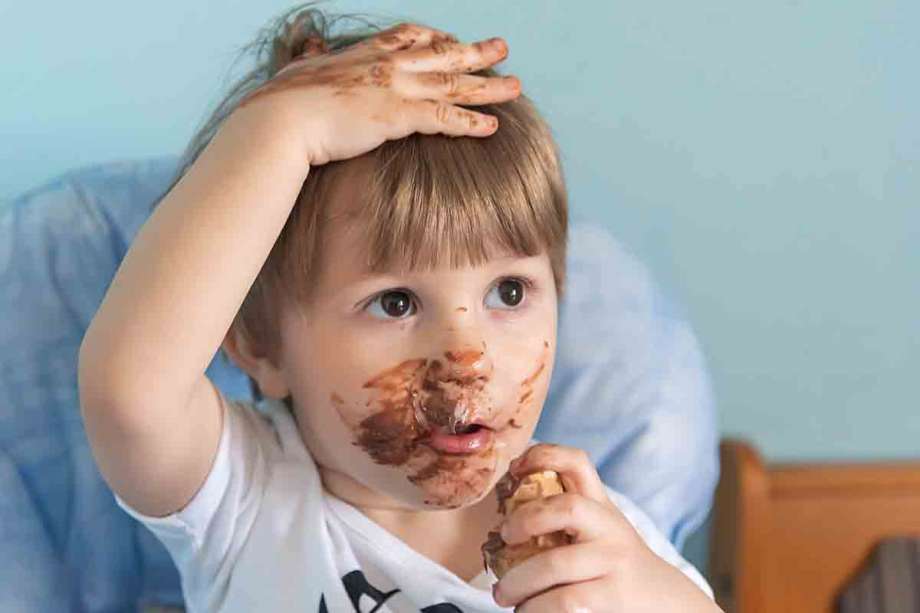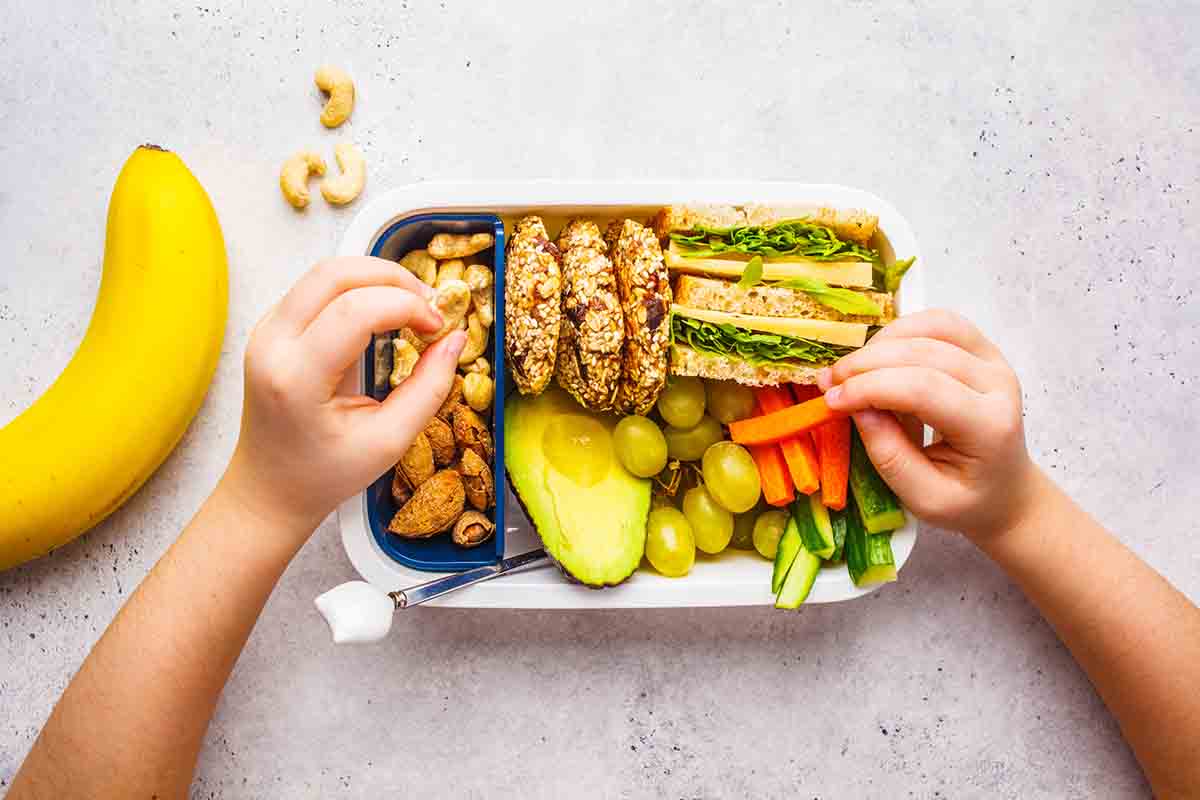Is Candy and Chocolate Okay for Toddlers?

Dark chocolate has long been toted as a healthy treat that is brimming with antioxidants and beneficial vitamins and minerals. This gives many parents the false impression that it is a good idea to offer this sweet snack to their kids.
Health Concerns With Sugar Filled Foods
While everything is okay in moderation, there are some things to keep in mind when you give candy and chocolate to toddlers.
Toddlers Should Not Be Given Added Sugar Or Caffeine

Despite the amazing benefits listed above, chocolate contains two ingredients that raise concerns with pediatricians -- sugar and caffeine. According to the American Academy of Pediatrics, "eating and drinking too much added sugar puts kids at risk for obesity, tooth decay, heart disease, high cholesterol, high blood pressure, type 2 diabetes and fatty liver disease, among other health problems."
Additionally, caffeine has been found to have detrimental effects on young children's central nervous systems by lowering their heart rate and increasing their blood pressure. It can also drastically disrupt their pattern of sleep. Research shows that "any alteration in the sleep cycle indirectly compromises the adequate mental and physical development of children."
What this means is that while chocolate does have health benefits for adults, it should be given limited amounts for young children. This is especially important for kids that are two years old or younger.
Toddlers Are More Prone To Choking
Another consideration is the physical safety of your children. Those sweet and sour suckers that your kids collect on Halloween and Easter seem harmless, but they can be a choking hazard. Thus, health experts recommend that children four years old and younger should not be given hard candies, gum, taffy, or other sweet treats that are difficult to chew.
Chocolate Can Trigger Unwanted Sensitivities And Allergies
Furthermore, an additional issue with giving toddlers chocolate is that it is extremely acidic. For those young children who suffer from acid reflux and other gastrointestinal issues, this can cause uncomfortable side effects and should therefore be avoided.
Finally, while rare, food allergies are a concern with toddlers. Unfortunately, most chocolate products, and candies in general, are a combination of a multitude of ingredients. If your child is still in the process of trying new foods, this could lead to the possibility of a dangerous reaction. Until you rule out all possible allergens, try to steer clear of combination foods.
How To Maintain A Healthy, Balanced Diet for Toddlers

What your child eats matters. This is especially true during their formative years. Throughout this time, their bodies are developing and they are learning healthy eating habits for the future. Here are some recommendations of how to promote a balanced diet, while still allowing your kids to indulge their sweet tooth on occasion.
Limit Sugar Intake
The AAP advises parents to "aim for less than 25 grams (about 6 teaspoons) of added sugar per day for children 2 years of age and older [and] avoid serving food and drinks with added sugar to children under 2 years of age."
While this may seem like a simple task, added sugars can be found in an array of seemingly healthy foods. Applesauce, baked beans, dried fruits, pasta sauces, peanut butter, yogurt, granola bars, fruit juices, ketchup, and even baby food are all hidden sugar sources. By adding in chocolate and candy, you will easily exceed these recommended daily values.
One of the most important things you can do when preparing your child's meals is to look at the labels to determine what is in the food products. However, we are all busy with work, school, keeping up the house, and life in general. So how do you stay on top of this task?
Resources like Yuka are vital for parents with hectic lives! This simple mobile app allows you to scan the barcodes of items while you shop to determine the health impacts of each product. This can assist you in easily deciding on products before you buy them and ensure that your toddler is getting the best possible nutrition.
Do Not Use Sweet Foods As A Reward
Sugary snacks should never be used as a reward for good behavior or for finishing a meal. This action will instill bad eating habits in your kids and "it interferes with kids' natural ability to regulate their eating. It also encourages them to eat when they're not hungry." Additionally, healthcare experts note that this practice can imply that nutritional foods are unappealing and therefore bring on picky eating habits.
Instead, acknowledge and reinforce your kid's achievements and positive actions with tangible items and exciting pursuits. These could include a new stuffed animal, a trip to the park, or getting to watch their favorite movie.
Promote A Balanced Diet
Once you have a two-year-old on your hands, it is okay to allow them to eat a small piece of chocolate every once in a while. However, your goal should be to encourage the consumption of nutritious foods and limit the number of empty calories that they eat.
Some of the best alternatives to sweets like chocolate and candy are fresh fruit, sweet potato crisps, greek yogurt, and peanut butter (the brands with less sugar). Also, do not discount natural sweeteners like honey (children must be one year old or older to consume this) and coconut sugar as well as spices like cinnamon, nutmeg, and allspice.
Lastly, remember to lead by example. Children are extremely perceptive and they mimic the habits of the people around them. If you do not have a healthy diet, neither will they, so prioritize your health and wellness.
Prioritize Their Oral Health

Finally, if you do choose to indulge your toddler's sweet tooth by giving them chocolate milk, ice cream, or m&ms, remember that it is imperative that you take the time to brush their teeth afterward. While you may be thinking that their baby teeth will fall out eventually, the presence of these adorable pearly whites is imperative for a healthy set of adult teeth to form properly.
The American Dental Association stresses that "when a baby tooth is lost too early, the permanent teeth can drift into the empty space and make it difficult for other adult teeth to find room when they come in. This can make teeth crooked or crowded." Thus, make a point to brush their teeth immediately after consuming sweet treats.
__________________________
For more nutritional tips and diet advice for kids and teens check out our guide to Health and Nutrition for Kids.

